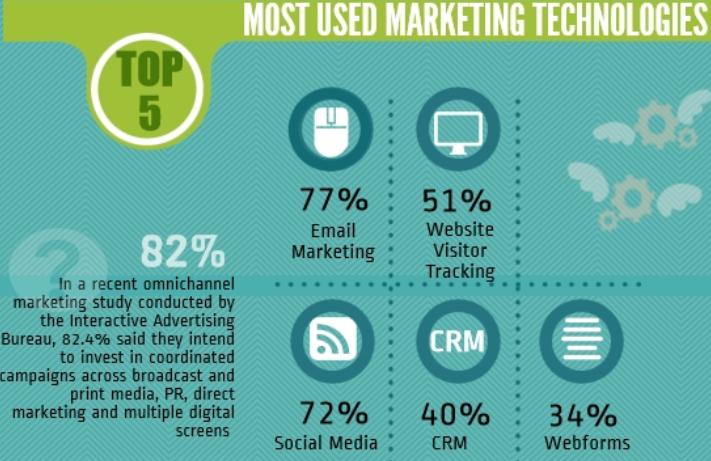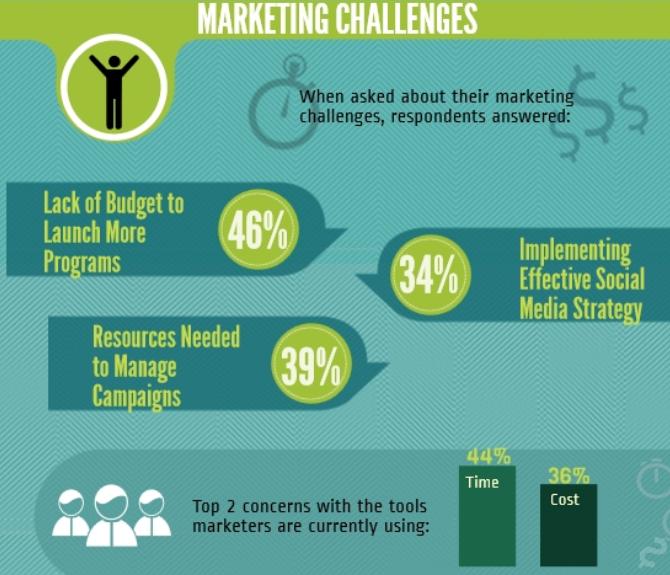Social media sites like Facebook Inc. (NASDAQ:FB) and Twitter Inc. (NYSE:TWTR) might have revolutionized the advertising world for businesses of all kinds for top brands, SMBs, local brands and every other major sector, yet it lacks behind e-mail marketing methods in terms of usage rate. Although, social media provides user engagement in various forms like pictures, videos and blogs, e-mail marketing provides more personalized and private interaction with brand followers. Not just that, the number of email users’ accounts according to Kissmetrics (in 2012) is estimated to be around 2.9 billion, which is much more than the total user base of Facebook, Twitter and LinkedIn put together. According to Radicati group, the estimated email users’ account is 1.9 billion. Worldwide email traffic is expected to be 507 billion messages per day in 2013.
Email Marketing More Effective Than Social Media Marketing
According to a study by ActOn, which surveyed 19,464 marketers from North America about tools and technologies they prefer in the course of their work, found that email marketing was preferred by 77% of marketers outplaying social media which was up held by 72%. Nearly 51% claimed website visitor tracking as important and about 40% stressed on CRM (customer relationship management).
E-mail marketing is old and one of the important methods followed by marketers across the globe. It is a tried and true method which cannot be avoided, as it provides a one on one interaction between the brand and potential or existing consumers leading to a strengthening of loyalty and trust factors between the two. Well designed, interactive emails, engaging articles or newsletters that provide informative entertaining content along with brand related messages is welcomed by most of the consumers. Brand awareness and visibility increases when well compiled engaging emails are sent.
Email marketing is much more cost-effective compared to social media advertising as for every $1 spent on e-mail marketing, average returns are around $44.25, as per findings by Baynote. According to a study by AW Pro Tools, amongst high earners, email was considered more influential and affected the buying decisions of 13.8% of respondents, whereas Facebook was influential to 13.5%. Twitter was the least influential and up voted by a mere 1.9% of respondents. For customers who are business minded and expect extra attention, email marketing is most likely to click for such folks as it is more personalized and private. Whenever consumers open emails, they do so with the sole intention of brand engagement, whereas in Facebook there are a lot of other features which might sway the attention of users from brand ads.
Marketers should focus on designing enriched emails with attractive templates, rich media content, website links and a plug-in, which will direct users to their favorite product category on a brand website. Special discount offers and free gift products must be availed exclusively for consumers who engage through emails. Marketers must send emails towards the weekend, as consumers are eager to check their mails and plan for weekend shopping.
According to eMarketer, open rate of marketing mails on Friday were as high as 19.6%, which is much more significant compared to rest of the days. Click-rate of emails was recorded highest yet again on Fridays with 4.9%. Marketers should invest significant time in framing marketing emails with a clear and catchy subject line, rich media content and special deals for consumers. An unsubscribe option must be availed to avoid pestering less interested consumers and preserve brand integrity.
Spam challenge is the biggest disadvantage of email marketing, certain steps must be followed to tackle the issue effectively. Words like Free, Great offer, click here and the ones which are exclamatory in nature must be avoided as they are identified by spam filter as spam and directed away from the inbox. Subject lines like money back guarantee, seeking urgent alert or attention and promising huge returns for investment also alerts spam filters. Marketers should have an optimum gap between 2 marketing emails, consumers are likely to report a particular marketing mil as spam if the brand’s mail is sent after a very long time. Marketers should keep their interested user base updated with upcoming products or initiatives taken. They should avoid purchased bulk lists and should give an opt-out option to customers.
34% Of Marketers Raised Issues In Implementation Of Effective Social Media Strategy!
Social media marketing has undoubtedly captured the attention of a majority of marketers across the globe due to its massive active user base and unique and innovative engagement formats (likes, shares, follows, re-tweets). But if we analyze a tally of successful social media marketers or the ones who have derived a desired ROI compared to the marketing budget invested, the figure is significantly low.
Nearly 34% of marketers claimed implementation of effective social media strategy as one of the biggest challenges ahead of them. About 46% of them claimed lack of budget and 39% supported lack of resources as the prime reason for their inability in providing expected returns to brand owners. Nearly 15% of social media reviews recorded in the form of likes or shares are claimed to be fake. Marketers are finding it tough to quantify or standardize ad performance terminologies, such as likes, follows, shares & re-tweets and it effects profit margins or sales rates. The metrics are defined by social media networks and there is no particular standard or metric system which defines ROI which marketers can expect from a particular ad report insight.
Social media marketing although drives a significant amount of brand engagement or sales but it requires hefty budgets to manage campaigns and the derived results are not always as expected. Due to various competitors on social media platforms, consumers prefer to switch brands easily when they do comparative analysis of different brands on Facebook or Twitter in terms of brand engagement by other users, deals or offers, number of likes or follows rather than verifying the genuineness of brand products.





Great Job, thanks for the report this definitely shows that email marketing is still alive to know more about email marketing visit <a href=”http://www.globalemaillists.com/”>Globalemailists.com</a>